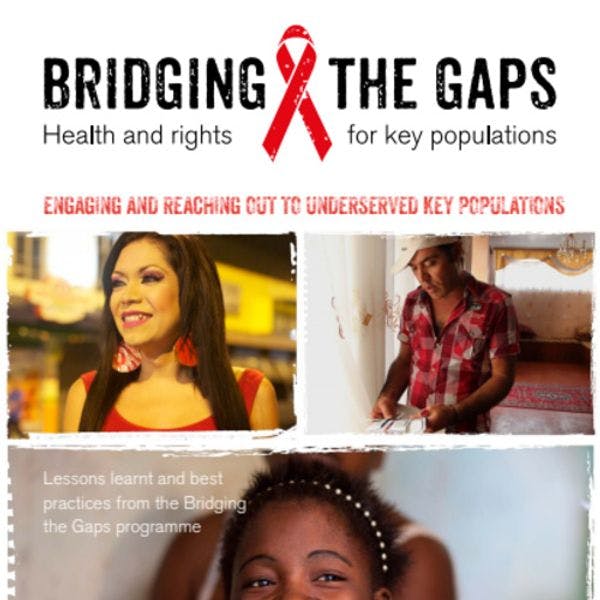Les leçons tirées de l’engagement des populations clés mal desservies
Ce document décrit les bonnes pratiques et les leçons tirées des organisations partenaires locales du programme « Bridging the Gaps » concernant l’engagement envers les populations clés mal desservies. Pour en savoir plus, en anglais, veuillez lire les informations ci-dessous.
Abonnez-vous à l'Alerte mensuelle de l'IDPC pour recevoir des informations relatives à la politique des drogues.
It is widely acknowledged that marginalised populations are the most vulnerable to HIV, but there is little consensus on how to engage them. Outreach is a frequently used method, and is recommended by the WHO as a vital addition to interventions within the healthcare system. This document describes good practices and the lessons learnt from local partner organisations of the Bridging the Gaps programme, regarding how they have engaged and reached out to underserved key populations. These good practices and the lessons learnt were identified in programme documents from 2012-2015, and in operational research conducted in 2014 and 2015 in Kenya, Kyrgyzstan, Ukraine and Vietnam.
Operational (or implementation) research aims to improve programmes. It seeks to find out how to optimise programme inputs (e.g. personnel, supplies) and processes (e.g. training, supervision, promotion of services) . A total of 767 people participated in the studies. This included members of key populations, and key informants from local partner organisations, civil society organisations, service providers (healthcare workers, outreach workers, peer educators), national and international NGOs, and Ministries of Health.
Keep up-to-date with drug policy developments by subscribing to the IDPC Monthly Alert.
Téléchargements
Régions
Profils associés
- aidsfonds
